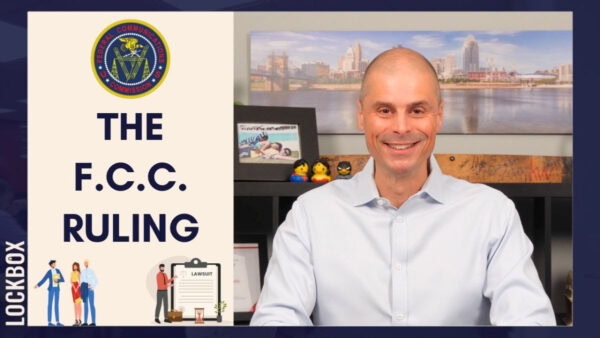The Sitzer | Burnett Lawsuit Reality

Realtor friends, the recent legal developments impacting our industry have been a shot heard around the world. The Sitzer|Burnett verdict finding the National Association of Realtors (NAR) and two large national brokerage brands guilty of colluding to fix commission pricing means that we must reassess our approach to our profession. With more lawsuits on the horizon and a changing landscape, there are some vital adjustments we need to make – immediately. Some of these changes are in our mindset, and some of these changes are in our skill set. Let me enumerate these 5 immediate adjustments:
1. Embrace that Change is Inevitable
The first and most crucial adjustment we need to make is with our mindset. We need to accept that change is inevitable. It always has been! Our industry is constantly evolving, whether due to technological advancements, regulatory changes, competition, or new business models. This current legal scenario is no different. We must be adaptable and prepared for these changes. To quote John Maxwell, “Change is inevitable; participation is optional.” These changes are happening; each of us has the choice on whether or not we will embrace these changes.
2. Understanding Your Value Proposition
As we navigate these changes, knowing your value proposition becomes increasingly important. I believe that the use of buyer-broker agreements will likely become more prevalent. This has always been an industry best practice; in the future, this will be an industry necessity. But for a buyer to commit to working exclusively with you in a written agreement, they must first want to work with you and be willing to not use any other Realtor. Being clear about what you do, how you advocate for your clients, and how you make their journey better is essential. Equally importantly, you must be able to communicate your value effectively and how that value earns you a commission.
3. Transparent Compensation Discussion
Buyer agent compensation has always been a little bit misunderstood by consumers (hence the lawsuits we are seeing right now). Moving forward, we will need to be more explicit about how we are compensated and what we’re compensated for. This transparency is not only beneficial for us as agents but also for our clients. It fosters trust and understanding in the professional relationship. The best time and place to create this transparency is during your buyer consultation. Done correctly, performing a buyer’s needs analysis, followed by a presentation of your value proposition, should end in the presentation and execution of a buyer-broker agreement. That agreement will clearly outline the buyer’s commitment to working with us as well as what we charge and how we are compensated.
4. Familiarity with Buyer Broker Agreements
Long neglected as an unnecessary step, or “non-relational”, the buyer-broker agreement is being primed to be a staple in our industry. There is a misperception with Realtors that buyers don’t want to sign them or it’s too difficult to present. This is simply incorrect. At The Chabris Group, we have used these agreements since 2016, with a success rate of over 90% in getting them signed. That’s higher than even the best listing agents’ conversion rates on signing sellers! The point is that the buyer wants transparency about how the system works, wants to be represented by a professional, and will commit to paying for it. Simply stated: clients are receptive to these agreements when they understand the value you provide and how you advocate for them.
5. Mindset Reset
These lawsuits – however they ultimately shake out – are not the end of the world. These lawsuits are simply the latest in a series of changes that our industry – like any industry – has undergone over the years. It’s time to reset our mindset. Know your value, communicate transparently about your compensation, and educate your clients that you are the right person for their real estate needs. This will lead them to confidently sign the buyer-broker agreement.
As we wind down the year and prepare for 2024, let’s view these changes not as obstacles but as opportunities to refine our practice and elevate the level of service we provide to our clients. (For a great read on leaning into challenges and change, check out Ryan Holiday’s book, The Obstacle is The Way.) The key to any change in life is found in being proactive, embracing change, and identifying the new opportunities that present themselves in the change.












